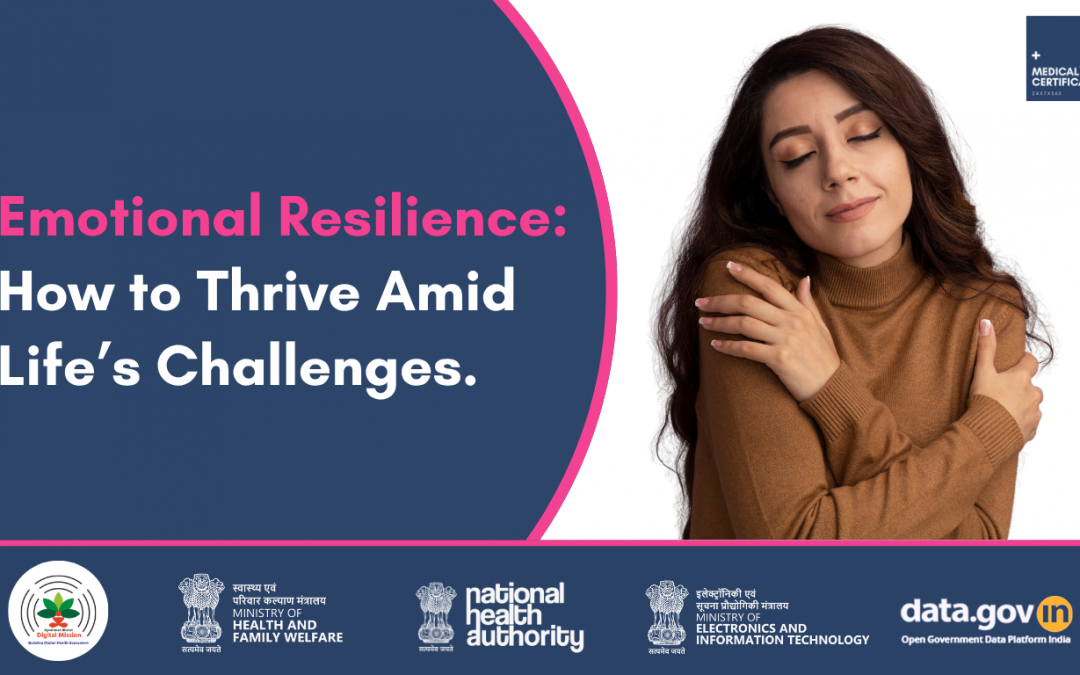We’ve all experienced times when things happen that make us doubt all our plans — a relationship breaks up, plans are put on hold, someone lets us down or anxiety arises. Certain people are able to recover right away, but some become trapped, drowned or used up emotionally. In the end, the main difference is that resilience to hard emotions is quiet, but powerful.
Having emotional resilience helps you adjust well to disruptions, losses or hard times. That’s not what it’s meant to be; it’s not asking you to deny or hide your emotions. Actually, people who are resilient deeply experience their emotions, but they aren’t paralyzed by them. They heal, come together again and develop from what happened. Here’s a point many people probably don’t know: resilience can be learned, it isn’t only something you’re born with. The process itself enables you to build it carefully, day by day and fit it to your own requirements.
Since today’s world is full of stress, uncertainty and troubling emotions, you need to learn how to handle your reactions and save your mental peace. I won’t ask you to try to be strong or to remain positive in this blog post. It’s going to demonstrate habits and attitudes that can help you remain steady, confident and effective in any situation that comes your way.
What Is Emotional Resilience?
Emotional resilience lets you deal well with difficult situations, trauma or stress that comes your way. With these ideas, you learn to keep going after situations@ you hadn’t planned and when others disappoint you.
Even so, being resilient doesn’t stop you from experiencing your feelings. Trigger warnings don’t ask us to be careless about real-world issues. You should embrace your emotions, even if they’re messy and not get stuck in them.
You should keep in mind: being resilient will not address each and every problem you face. It shows you how to manage in the rain, so you don’t get drenched.
The Quiet Price of Being Without It
If you find yourself readily getting overwhelmed, stuck in difficult places, or dazed in fear or self-doubting patterns, you’re not broken — but maybe you’re drained emotionally.
In our virtual world, our emotional bandwidth is under attack. News cycles, personal loss, job stress, burnout — it all adds up to too much. Without resilience, minor setbacks become massive roadblocks. We get stuck, we blow up, we spin.
It’s not just about overcoming major challenges; it is actually a means of dealing with everyday setbacks like not meeting deadlines. Cuts that hurt. Unmet expectations. They can shape our mood, way of thinking and behavior more powerfully than we notice.
Then, How Do You Build It?
This is where it gets real. Emotional resilience isn’t something that occurs overnight. But with regular practice, anybody — yes, anybody — can develop it. It starts with a few honest changes:
1. Feel Without Judgment
Resilient individuals don’t cut off their emotions — they let themselves feel. Anger, fear, sadness — all normal. What they don’t do is shame themselves for feeling that way.
Try the following: When you next get overwhelmed, bring yourself to an instant halt and identify your feeling. “I’m feeling anxious.” “I’m hurt.” Calling it something diminishes some of its power. You can’t repair what you won’t own.
2. Shift Your Inner Dialogue
We all have that voice in our head — the one that tells us we’re not good enough or that this is too much. That voice is not you. That’s your brain reacting to fear. But you can push back.
Instead of telling yourself you can’t do it, replace it with:
- This feels tough and I understand because I’ve overcome tough times before.
- Instead of complaining about everything falling apart, try saying:
- I’m aware that things are moving forward and I’m adjusting.
Your brain forms certain opinions about things you say repeatedly. Talk to yourself as you are your best friend.
3. Build Your Bounce-Back Habits
Resilience isn’t just mind — it’s also muscle memory. What are you doing when you’re hurting? Where do you go when life stings?
Perhaps it’s 10 minutes of writing, a walk, a phone call to someone you can trust, or just making tea and taking slow breaths. Develop small, ritualistic routines that you can summon — particularly when your universe is exploding.
4. Know When to Reach Out
Resilience doesn’t have to be a solo endeavor.
Actually, one of the best predictors of emotional healing is connection. Working through things with someone who listens without judgment — a support group, therapist, or friend — can make you less alone.
It does not make you weaker. It indicates that you’re intelligent enough to understand that healing occurs in the community.
5. Rest Is Not a Luxury
We honor “pushing through,” but resilience is also a function of knowing how to rest. Weariness doesn’t make us stronger — repair does. Sleep. Eat healthfully. Move your body. Say no when you must. Establish boundaries that defend your energy, not merely your calendar. Emotional resilience resides in rested minds and well-fueled bodies.
The Beauty of Bending Without Breaking
The difference with emotionally strong individuals is that they do get knocked off course. But they don’t remain knocked down indefinitely.
They permit their pain but don’t permit it to consume them. They may lose things, but not themselves. They’re not perfect—just honest and aware and devoted to being a better person.
That is the soft power of resilience. It doesn’t blast. It doesn’t shine. It’s dogged, steady, and often invisible — until you turn around and realize: “I didn’t think I’d survive that… but I did.”
Final Thought: You’re Already Stronger Than You Think
Strengthening our emotions doesn’t require us to become someone else. It means you develop fully and stand firm, clear about who you are and able to overcome life’s chaos without tipping your balance.
It’s not necessary to be perfectly confident. Just keep going and you’ll get there. Keep looking. Keep growing.
Resilient people don’t trade effort to return to the past, but forge ahead and discover new strengths.

